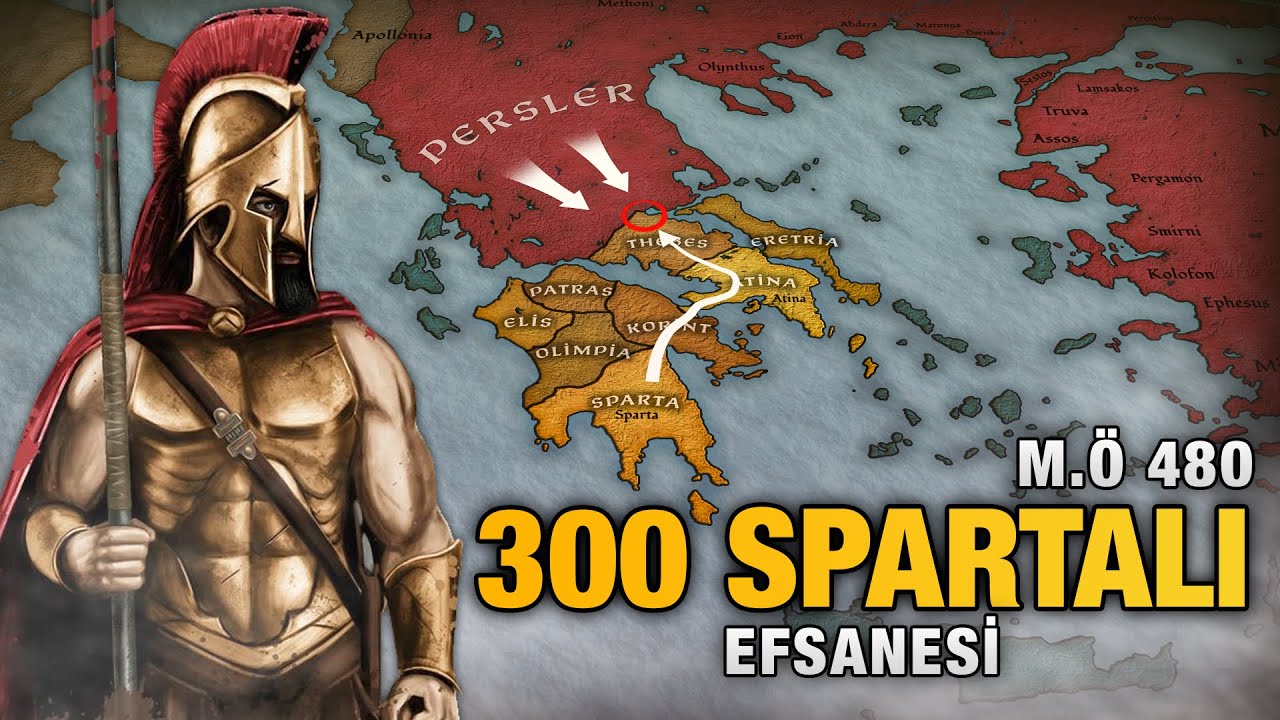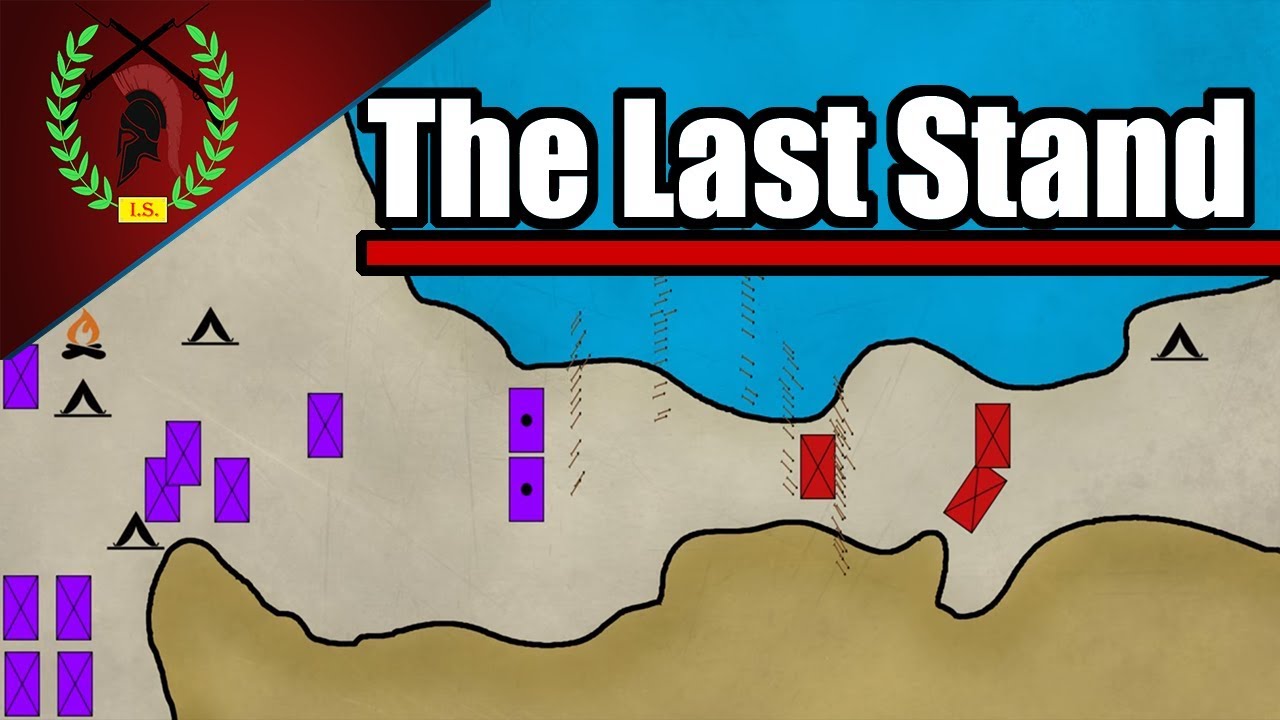Battle of Thermopylae - Spartans vs Persians
Summary
TLDRThe video explores the pivotal Battle of Thermopylae, where a small Greek force led by King Leonidas held off the massive Persian army, buying time for Athens' evacuation. Despite being outnumbered, the Greeks' superior tactics and armor played a crucial role. The battle, often considered a pyrrhic victory due to its high cost, was a testament to Greek unity against a common foe and had profound implications for the preservation of Athenian culture, which greatly influenced modern democratic values.
Takeaways
- 🏛️ Western Democracy has its origins in ancient Greece, with Athens being a pioneer in the idea of citizens having a say in their governance.
- 📜 The Greco-Persian Wars were triggered by Greek cities in Asia Minor revolting against Persian rule, with Athens and Eretria supporting the revolt.
- 👑 King Darius I of Persia sought to punish Athens and Eretria and viewed the independent Greek city-states as a threat, leading to his invasion plans.
- 🏃 The Battle of Marathon was a significant early victory for the Greeks against the Persians, despite being outnumbered.
- 🔄 Darius' death led to his son Xerxes I continuing the campaign to conquer Greece, aiming to avenge his father and assert Persian dominance.
- 🛡️ The Battle of Thermopylae was a strategic defensive effort by the Greeks, led by King Leonidas of Sparta, against overwhelming Persian forces.
- 🌊 The Persian navy, though large, suffered from storms and was less effective than the smaller, more experienced Greek fleet.
- ⛰️ The narrow pass at Thermopylae was crucial for the Greek defensive strategy, allowing them to counter the Persian numerical advantage.
- 🏺 The Greek phalanx formation, with its long spears and heavy armor, proved highly effective against the less armored Persian infantry.
- ⚔️ Despite the heroic stand at Thermopylae, the Greeks were ultimately outmaneuvered, leading to a strategic retreat and the eventual Persian victory at sea.
- 🏛️ The significance of Thermopylae lies not only in the battle itself but also in the preservation of Athenian culture through the evacuation of its people.
Q & A
What was the significance of the Battle of Thermopylae in the context of Western Democracy?
-The Battle of Thermopylae symbolizes the defense of freedom and democracy against tyranny. It showcased the Greek city-states' resistance to Persian invasion, which was a precursor to the development of Western democratic ideals.
Why did the Greek cities in Asia Minor revolt against the Persians in 499 BC?
-The Greek cities in Asia Minor revolted against the Persians due to the oppressive rule of the tyrants placed by the Persians to oversee them.
How did the Persians react to the revolt in Asia Minor and the support from Athens and Eretria?
-The Persian King Darius I vowed to punish Athens and Eretria for their involvement in the revolt and saw the remaining free Greek cities as a threat to his empire.
What was the outcome of the first Persian invasion of Greece, specifically at the Battle of Marathon?
-Despite being outnumbered, the Athenians achieved a dramatic victory at the Battle of Marathon, forcing Darius to retreat.
What was Xerxes' strategy for his invasion of Greece, and how did he plan to outflank the Greek defenders?
-Xerxes' strategy involved marching into Greece through the north and outflanking Greek defenders by landing his navy behind them along the Greek coast.
Why did the Spartan army not fully support King Leonidas at the Battle of Thermopylae?
-The Spartan army did not fully support King Leonidas because they feared that the helots they held as slaves might revolt if the army left and didn't take them with them.
How did the geography of the pass at Thermopylae affect the battle?
-The narrow pass at Thermopylae, only 50 feet across, allowed the Greek forces to utilize their phalanx formation effectively and denied the Persians the advantage of their overwhelming numbers.
What was the role of the Greek navy at the Battle of Artemisium, and how did it impact the Persian fleet?
-The Greek navy, primarily Athenian, engaged the Persian fleet at Artemisium, achieving minor victories that weakened the Persian fleet and provided valuable insights for future battles.
How did the Battle of Thermopylae become a pyrrhic victory for the Persians?
-Although Xerxes achieved a victory at Thermopylae, the high cost in terms of Persian casualties and the eventual Greek victory at the Battle of Plataea meant that the battle was a pyrrhic victory.
What was the long-term impact of the Battle of Thermopylae on Greek culture and democracy?
-The Battle of Thermopylae, through the sacrifice of the defenders, allowed for the evacuation of Athens, preserving Athenian culture and democracy, which has had a lasting impact on Western values.
How did the Persians contribute to the development of democracy despite their portrayal in popular media?
-While popular media often portrays the Persians as adversaries of democracy, they actually contributed to its development by introducing administrative practices and legal codes that influenced later democratic societies.
Outlines

This section is available to paid users only. Please upgrade to access this part.
Upgrade NowMindmap

This section is available to paid users only. Please upgrade to access this part.
Upgrade NowKeywords

This section is available to paid users only. Please upgrade to access this part.
Upgrade NowHighlights

This section is available to paid users only. Please upgrade to access this part.
Upgrade NowTranscripts

This section is available to paid users only. Please upgrade to access this part.
Upgrade NowBrowse More Related Video

The LEGENDARY Battle of Thermopylae - THE 300 SPARTANS

Termofil Muharebesi (M.Ö 480) | Leonidas vs Serhas

The Battle of Thermopylae: How 300 Spartans Held Off Thousands of Persians | DOCUMENTARY

Le guerre persiane: Maratona, Termopoli e Salamina

The Battle of Thermopylae : Last Stand of The Greeks - Military History Animated.

Epic Battles of the Persian Wars – Animated History Unveiled!
5.0 / 5 (0 votes)